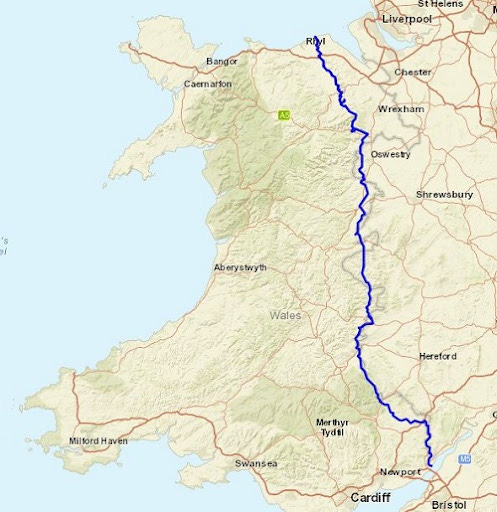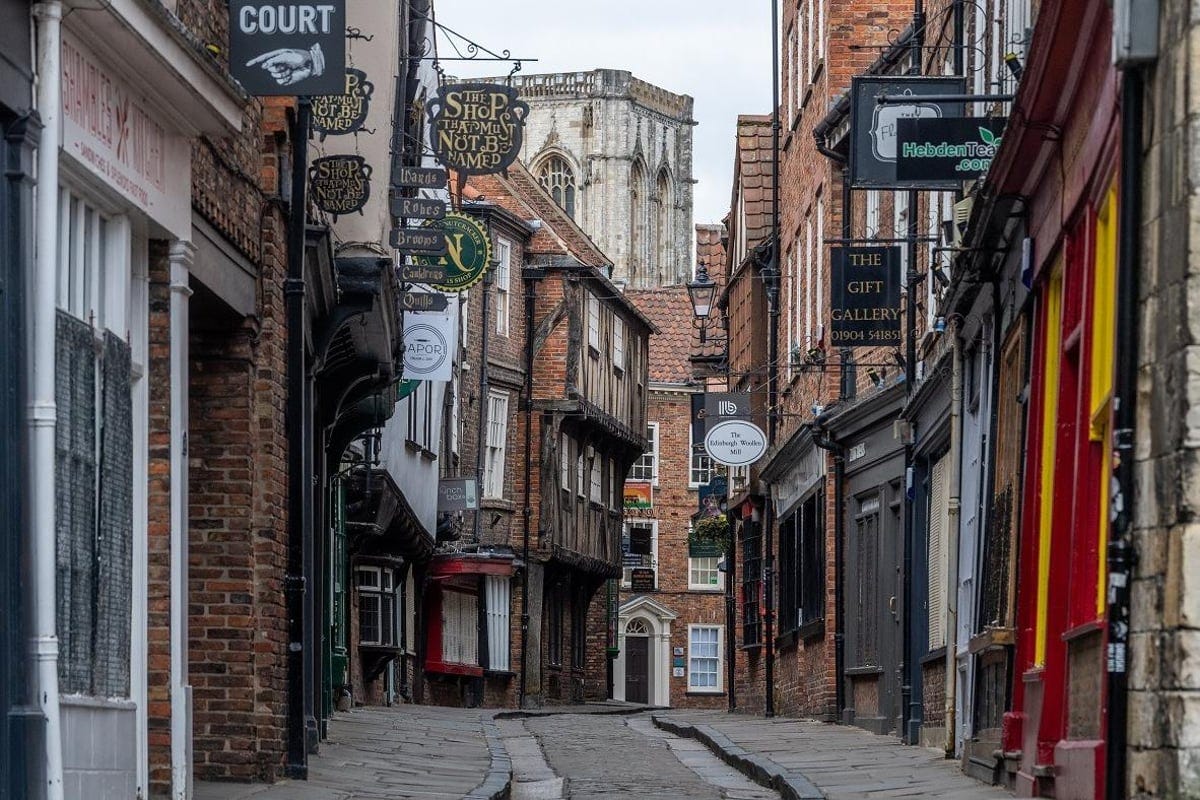The Caledonian chieftain Calgacus famously quipped that the Romans “make a wasteland and call it peace". Roman Britain instead was quite prosperous and peaceful by 3rd-century standards. Ironically, when the Romans left Britain in the early 5th century, the coloniae devolved into something approximating a wasteland. Roman towns and cities were abandoned, urban centers began to shrink, and people moved back to the countryside. High value trade collapsed and Britannia essentially became a subsistence economy. It was this economic wasteland that the Angles and Saxons (among other tribes) invaded and in about 600 years created one of the wealthiest kingdoms in all of Europe.
Perhaps due to the scarcity of surviving physical monuments or texts, the Anglo-Saxons are somewhat underrated today. Their influence on modern Britain is undeniable—through language, legal traditions, place names, and more. I was surprised to learn that the average millennial in England does not recognize iconic figures like Athelstan and Aethelflaed. The exception here is Alfred the Great, who thanks to his 16th-century revival by Reformation scholars, is likely appropriately rated today.
In the last year, I’ve read Marc Morris’ book on the period, watched the TV show The Last Kingdom, went down rabbit holes with o1 and o3, and visited Yorkshire and Kent. There are three key threads to the Anglo-Saxon story that I want to highlight. The history of the Dark Ages is complex and dynamic, but among the very few constants in the Anglo-Saxon story are chaos, commerce, and Christianity.
Chaos
The chaos wrought by Viking invasions shaped the Anglo-Saxon period. These relentless raids forced Anglo-Saxon kingdoms to confront a reality where security and stability were in constant flux. The resulting disorder led to the construction of fortified “burhs”, reorganization of political alliances and also spurred a cultural blending, as Dane and Anglo-Saxon ways of life merged. In the end, one could argue the Vikings won the centuries-long war when in 1066 AD the Normans of “Normannia” (i.e. the land of the Northmen) conquered Britain.
Commerce
In the aftermath of Rome’s collapse, the Anglo-Saxons forged a new economic order. They built localized economies centered around self-sufficient manors and burgeoning market exchanges. This grassroots commerce not only filled the vacuum left by the Roman system but also set the stage for the intricate, community-based economic structures that would eventually evolve into modern British commerce. Through its name, layout, and surviving fabric, The Shambles in York stand as a palimpsest: a street where the Anglo-Saxon economic order remains faintly inscribed beneath tourist traps and souvenir shops today. The street’s name, recorded in medieval sources as “The Great Flesh Shambles”, derives from the Old English fleshammels, literally “flesh-shelves,” used by Anglo-Saxon butchers to display cuts of meat. In 700 AD, York (then Eoforwic, later Jorvik under Danelaw) received a royal market charter, granting the right to hold weekly markets and cementing its role as a regional hub of trade and exchange.
Christianity
Christianity serves as the intellectual backdrop against which the Anglo-Saxon story plays out. The Angles and Saxons were originally heathen Germanic tribes but St. Augustine did a good job of spreading the Christian meme amongst the elite in the late 6th century. The spread of Christianity in Britain was not a simple process, however. Irish missionaries brought a somewhat Celtic form of Christianity characterized by unique monastic traditions and distinct liturgical practices. However, this Celtic influence soon encountered the Roman model, championed by figures like Wilfrid, whose advocacy for the Latin rite was pivotal in aligning English Christianity with the broader European church.
What is their legacy?
The Anglo-Saxons’ legacy lies in the very words we speak. Over 4,000 Old English terms, from “house” to “laugh,” survive in Modern English as testament to their enduring linguistic imprint. Cities and towns with names ending in “ing” trace their origins to the early Anglo-Saxons (“Reading” literally meaning “Reada’s kin”). Or the Anglo-Saxon administrative post of the “shire reeve” now surviving as “sheriff”.
To some extent, the divide between modern-day Wales and England can be explained by the original inhabitants of the island, the Roman Britons (by then pushed to the western edges), not willing to accept the ways of these heathen newcomers. Anglo-Saxons living close to the Wealas border would often exaggerate their Saxon-ness to make sure they were not mistakenly seen as Britons, which likely increased the cultural differences between the two communities.

Additionally, Anglo-Saxon legal traditions, seen in vernacular codes such as the Law of Æthelberht, form the bedrock of English common law—a system that would spread across the globe. And the dramatic debates at the Synod of Whitby in 664 AD, where Celtic and Roman Christian rites clashed and the Roman model prevailed, echo today in the very structures and identity of the Church of England.
In combining these threads of resilience amid chaos, economic ingenuity, and spiritual synthesis, we can see the Anglo-Saxons built a foundation so profound that, despite the lack of enduring physical reminders, modern Britain still swims in their waters.





